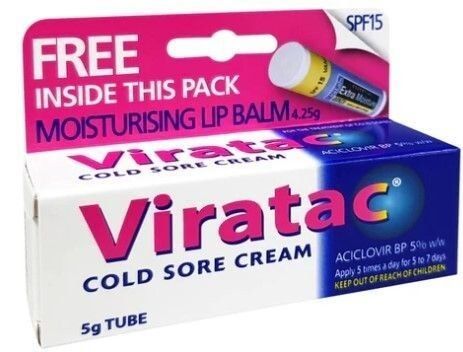Cold Sores
Cold sores are one of the most common skin infections caused by a contagious virus called herpes simplex virus. About 90 percent of adults worldwide – even those who’ve never had symptoms of an infection – test positive for having had this virus.
Cold sores usually occur outside the mouth, on or around the lips and while some people have no symptoms from the infection others develop painful and unsightly blisters. While there is no cure for HSV infection, there are treatments that can help cold sores heal more quickly and there are a number of preventative measures sufferers can take to reduce their risk of recurrence.
A cold sore usually passes through several stages:
- Tingling and itching. Many people feel an itching, burning or tingling sensation around their lips for a day or so before a small, hard, painful spot appears and blisters erupt.
- Small fluid-filled blisters typically break out along the border where the outside edge of the lips meets the skin of the face. Cold sores can also occur around the nose or on the cheeks.
- Oozing and crusting. The small blisters may merge and then burst, leaving shallow open sores that will ooze fluid and then crust over.
Signs and symptoms vary, depending on whether this is your first outbreak or a recurrence. They can last several days, and the blisters can take two to four weeks to heal completely. Recurrences typically appear at the same spot each time and tend to be less severe than the first outbreak.
Once you've had an episode of herpes infection, the virus lies dormant in nerve cells in your skin and may emerge as another cold sore at the same place as before. Recurrence may be triggered by:
- Viral infection or fever
- Hormonal changes, such as those related to menstruation
- Stress
- Fatigue
- Exposure to sunlight and wind
- Changes in the immune system
Cold Sore Treatments
In most people cold sores will heal in a few weeks and you don’t need to see a Doctor unless the infection is near the eyes, or if the skin infection becomes severe. Your doctor may prescribe an antiviral medication for you to take on a regular basis, if you develop cold sores frequently or if you're at high risk of serious complications.
The natural amino acid Lysine may help to slow down or stop the growth of the cold sore virus, and can prevent recurrence. The human body does not naturally produce lysine, so a person needs to get it from their diet or take a supplement.
The herpes virus is easily spread by close contact, and sufferers should avoid sharing drinking utensils, facecloths or kissing when they have an infection. If sunlight seems to trigger your recurrences, apply a moisturising sunblock to the spot where the cold sore tends to erupt.
Keeping the cold sore blisters covered with invisible patches such as Compeed or Nexcare speeds their healing by preventing them from drying out or being touched.
Viratac Cold Sore Cream contains the antiviral medicine acyclovir which reduces the severity and duration of cold sores.
Use Viratac as soon as the first symptoms appear, such as burning, tingling or itching. Apply Viratac Cream five times a day for four days.
